Fair Work Commission has handed down decision on train dispute between NSW government and rail unions
Sydney rail commuters have had a win after the Fair Work Commission suspended industrial action for four months, leaving the unions unhappy.

Breaking News
Don't miss out on the headlines from Breaking News. Followed categories will be added to My News.
Rail unions have been ordered to suspend industrial action until July 1, taking effect from 10pm Wednesday.
Fair Work Commission president Justice Adam Hatcher handed down the decision just after 6.30pm on Wednesday.
Justice Hatcher acknowledged both Sydney Trains and the Rail, Tram and Bus Union (RTBU) had come under significant pressure because of public backlash and associated media coverage.
“A suspension would allow the parties to nail down the agreed matters and to focus on the merits, rationale and affordability of the outstanding claim for a sign-on bonus free of these pressures,” he said.
The commission found that continued industrial action was “unlikely” to resolve the dispute and instead may result in both parties moving “further apart.”
It also rejected Sydney Trains’ request for the suspension to extend until September 6.
“The purpose of a suspension is to achieve a cooling off period in order to enhance the prospects of an enterprise agreement being reached, and not to operate as a de facto termination of bargaining,” it said.
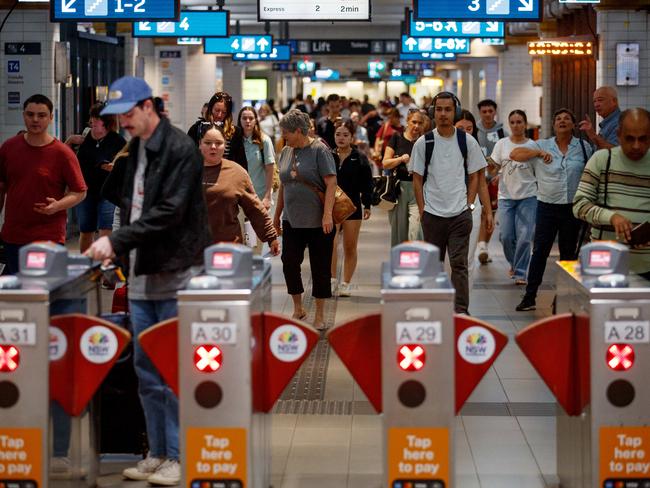
Mr Hatcher added the decision was made in the public interest to allow public confidence in the rail network’s reliability to be restored.
‘DISAPPOINTING’: RAIL UNION REACTS
RTBU NSW branch secretary Toby Warnes said the decision was “incredibly disappointing” and “set an industrial agenda for aggressive employers.”
“While we are hopeful that the NSW government will see this result as reason to come back to the negotiating table, we are not confident,” Mr Warnes said.
“Our fear is that the NSW government has no intention of finalising this bargain, and the lack of industrial action, or the threat of it, will mean it will continue to sit on its hands rather than reach agreement with its rail workforce.”
Mr Warnes lashed the government’s handling of the dispute as “shockingly poor” but said the union’s priority was to now get the opposing party back into negotiations.
“We are hopeful that the NSW government will now heed the warning of the Fair Work Commission, stop whipping up unhelpful, untruthful and anti-worker rhetoric and sit back down at the negotiating table immediately – not wait until the last minute as has been in the case in the past.”
GOVERNMENT WANTS IT SORTED
Transport Minister John Graham said the ruling “promises an end to disruption for commuters in Sydney”.
“We’re now in a position to respectfully get back to work,” he said.
“This is clear air for these discussions, but most importantly, it’s a clear run for commuters as they’re moving about the city, and that’s what really matters here.”
Treasurer Daniel Mookhey said the government was determined to use the next four months to finalise an agreement.
“We don’t want this to linger until July, we want this resolved quick,” he said.
DISPUTE HITS COURT
The long-running pay dispute between Sydney Trains, Transport for NSW and the rail unions was aired before the full bench of the commission on Wednesday.
Around 4300 train services were cancelled or delayed between Friday and Monday after more than 1725 rail staff didn’t report for work.
By Wednesday morning, 147 Sydney Trains and NSW TrainLink drivers and guards had not reported for work, with no cancellations across the network as of 7am.
Sydney Trains and NSW Trains argued during the hours-long hearing that protected industrial action should be suspended for six months because it hadn’t achieved the desired outcome.
The rail agencies’ barrister Simon Meehan SC argued a lengthy suspension would create a “cooling off period” and refocus attention on bargaining in private rather than in the media.
However, the rail union’s barrister Oshie Fagir said the NSW government was actually asking for there not to be any further industrial action at all.
“There is an air of unreality to the submissions that this is not an application to terminate,” he said.
Mr Fagir argued industrial action had been a factor in bringing the NSW government to the bargaining table but there was “almost a complete absence of any evidence” to show how a suspension would create an agreement between the parties.
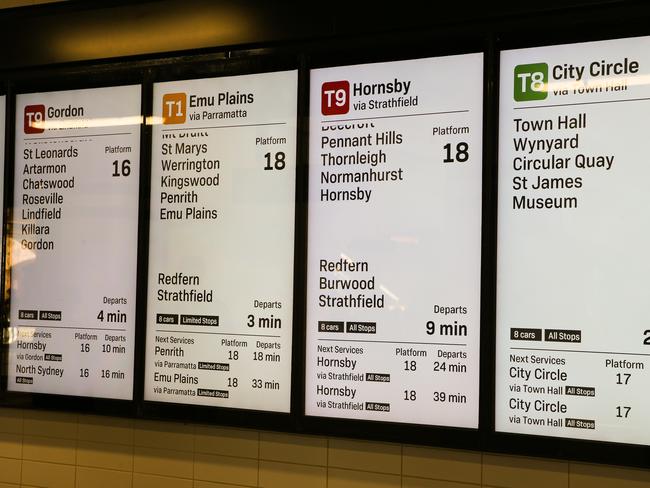
“It’s unsatisfactory for parties such as Sydney Trains to, one hand, refuse to come to the table, and on the other hand, to pull the rug out from under the table,” he said.
ACCUSATIONS FLY
Mr Fagir accused Sydney Trains of issuing “lockout notices” to engineer transport chaos and bolster their bid to suspend the unions’ industrial action.
While cross-examining Sydney Trains head of human resources Fatima Abbas, he suggested the section 471 notices had been employed as a “barely disguised” industrial tactic.
He said Sydney Trains must have known that issuing the notices would cause large amounts of staff not to show up for work, ramp up the disruption to the public and necessitate arbitration.
“That’s not correct. I hoped our team would turn up and do their jobs,” Ms Abbas replied.
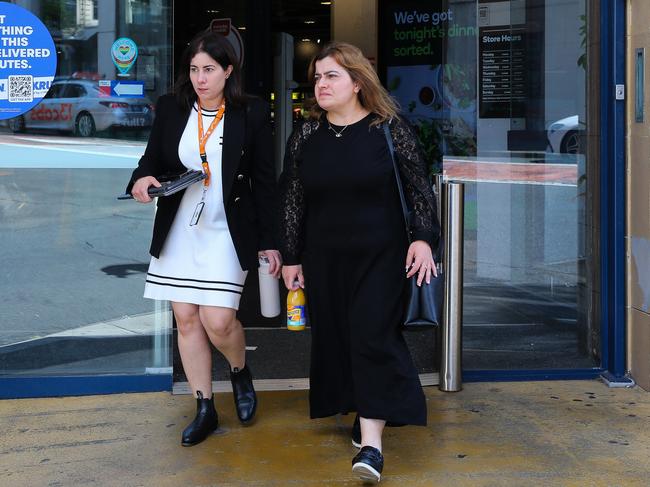
She steadfastly maintained that the decision to issue 471 notices had arisen during a meeting with Sydney Trains executives, rather than originating from NSW Premier Chris Minns’ office, as Mr Fagir put to her.
Ms Abbas also denied excluding evidence, such as a Sydney Trains risk assessment which said the industrial action would result in “network delays and some cancellations”, because it would be “fatal” to the case.
‘LOCKOUT NOTICES’
RTBU NSW branch secretary Toby Warnes came under fire for describing the notices as “lockout notices”, which legally refer to an employer preventing an employee from working.
He accepted rail staff were able to perform their duties under the 471 notices but maintained his description was correct because workers wouldn’t be paid if they engaged in protected industrial action.
“It’s my belief this is a form of a lockout,” Mr Warnes said.
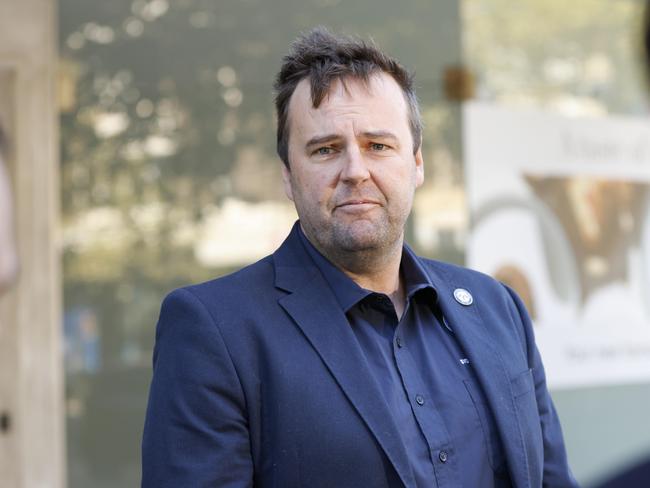
He argued the widespread train cancellations and delays had been caused by the unions’ industrial action and claimed “in fact no one has taken the industrial action.”
“The disruption has been caused by the section 471 notices and the employees’ reaction to the section 471 notices,” Mr Warnes said.
However, the government rail agencies maintain the travel disruption stemmed from the unions’ industrial action.
$4500 BONUS
The NSW government claims it told the rail unions that a $4500 bonus was not on the table late last year, months before negotiations broke down over the payment and triggered transport chaos.
The 11th-hour breakdown of negotiations between the government and the union was triggered by disagreements over a $4500 bonus payment.
The RTBU claims it is an “existing entitlement” to be paid regularly, while the NSW government claims it was a one-off bonus payment.
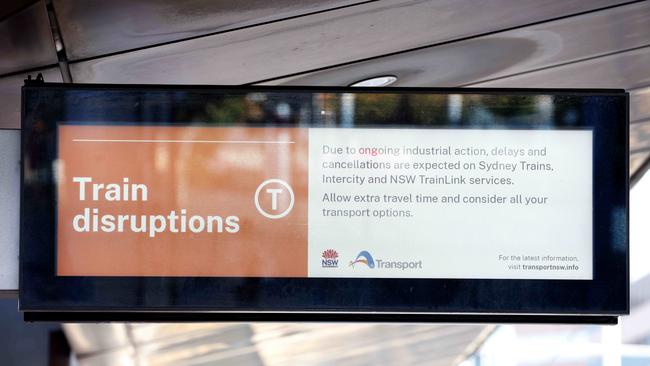
Ms Abbas said her team had arranged a drafting session for the enterprise agreement with the unions in November last year.
When asked if her team had told her there had been a mutual agreement to a clause containing a $4500 bonus, Ms Abbas replied the outcome had been the opposite.
“My team specifically told the (union) we would be removing reference to that one-off payment,” she told the commission.
Ms Abbas said the government agencies had provided “multiple offers” to the RTBU and Combined Rail Unions but had received only one counter offer.
Mr Warnes told the court the rail agencies and the unions “came within a whisker” of an agreement during a meeting on February 13.
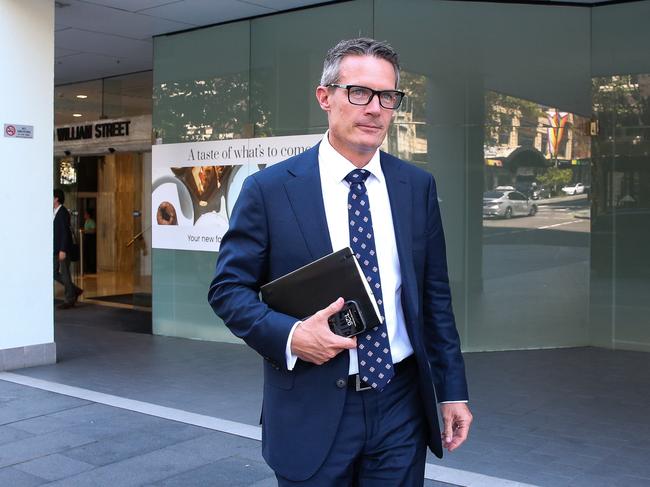
He had previously claimed the issue of the bonuses was the only issue left to resolve but said on Wednesday it was more nuanced.
Mr Warnes claimed the union had offered on February 13 to sacrifice the bonus payments to increase the pay bump for workers in the third year of the agreement.
However, Ms Abbas said there were “still a number of outstanding issues” to be resolved at that meeting in addition to the issue of the $4500 payments.
WARNING FOR COMMUTERS
The battle in court comes as Transport for NSW warned commuters to expect travel disruption as industrial action continues in Sydney.
“Passengers are still advised to plan ahead and allow extra travel time as there may be disruption over the course of the day due to industrial action,” a spokesman said.
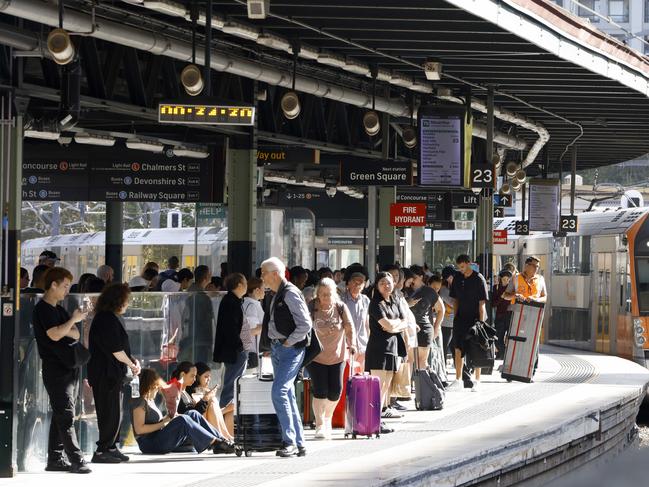
“Sydney Trains and NSW TrainLink apologise to our passengers once again for the ongoing disruption and thank our staff who are working hard to minimise the impacts of industrial action.”
Mr Warnes did not rule out any further industrial action during his evidence to the commission on Wednesday.
“We need to have a tool available to us to get the government back to that table,” he said.
“They only come to the table on the back of industrial action.”
Mrs on Tuesday said “everything (would be) on the table” following Wednesday’s hearing.
“Everything’s on the table pending the outcome of the case (on Wednesday) – I’m not going to rule anything out, including going to the Prime Minister,” he said.
More Coverage
Originally published as Fair Work Commission has handed down decision on train dispute between NSW government and rail unions



